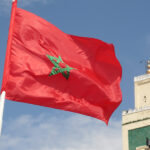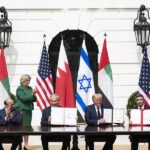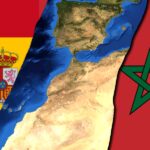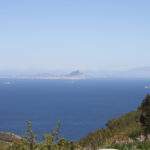
The Global Growth Conference 2025, organized by the Amadeus Institute in a context of global fragmentation, was not just another conference. It was, in many ways, an act of revelation: a stark exposition of the decline of Western leadership and the emergence of Africa as an actor no longer willing to wait for instructions or favors. What was discussed there, between African and European leaders, was not just the state of trade or the need for investment, but something deeper: who will have the right to define the rules of the 21st century.
Europe insisted on its moralistic and multilateral narratives, while Africa displayed a much more pragmatic outlook: one that recognizes the need for economic sovereignty, smart alliances, and real leadership.
“Europe behaves like a bachelor lost in the world of relationships,” said Abdelmalek Alaoui, CEO of the Guepard group, with a mixture of irony and diagnosis. And that comment encapsulated the general sentiment: the old continent seems caught between its moral superiority and its strategic irrelevance.
One of the most discussed points was the imbalance in global trade. Africa exports goods—minerals, food, energy—but is almost entirely dependent on services and technological products from the North. This structural dependence has been perpetuated by a system of unequal treaties, asymmetrical customs controls, and a trade architecture designed based on the logic of profit for a few.
In the words of Letrme, former Prime Minister of Belgium: “Free trade is to development what oxygen is to the human body.” And today, Africa needs to breathe on its own. The continent no longer seeks simply to integrate into the world order, but to participate in its redesign: fairer trade, with shared value chains, and with real decision-making capacity.
The diagnosis is clear: the West has lost ground. It gifted the technological revolution to China, failed to grasp the Russian trauma in time, and allowed authoritarian actors to occupy strategic spaces in multilateral organizations. Meanwhile, the Global South—led by Beijing and Moscow—has coalesced around a strong narrative, bold economic alliances, and a lack of moral scruples.
And Africa, historically marginalized, has begun to understand that its moment is now. Not out of resentment, but out of clarity. It possesses 60% of the planet’s arable land, a growing young population, strategic minerals, and a new generation of leaders ready to speak to one another. It doesn’t want tutelage or dependence. It wants agreements, respect, and sovereignty.
What happened at the Global Growth Conference wasn’t just a forum. It heralded a redistribution of global power. And in it, Africa is no longer the continent of the future: it is the most real player in the present. In a world at war with trade, ideological, and technological power, balance will not be restored with nostalgia, but with vision.
Europe still has a role to play, but to do so, it must abandon its complacency, acknowledge its strategic mistakes, and understand that this time it’s not about leading, but about collaborating. The new map of power is now being drawn, and Africa finally has the pen in hand.





